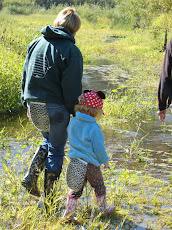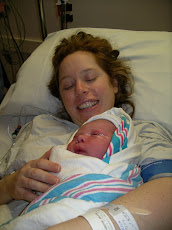
Sometimes really horrible things happen to good people. Like Michelle Whitlock, a remarkable woman who is working on a global campaign called “Pearl of Wisdom” to educate and spread the word about cervical cancer. Michelle’s story is shocking. She was abandoned by her mother at age three and helped to raise her siblings while her father struggled with drug and alcohol dependence. She went on to college and a career. But when she was 26 years old, she was diagnosed with advanced cervical cancer that led to extremely invasive treatments, surgeries, pain and anguish. Years later, she is a survivor, an advocate and very recently, a mother.
But horrible things don’t necessarily have to happen if we are well informed and vigilant. The Pearl of Wisdom campaign aims to prevent more people from getting this disease by informing women – and especially mothers – about the options for avoiding this heartbreaking disease. I participated in a conference call a few weeks ago with Michelle Whitlock and Dr. Marie Savard, a doctor, author and medical contributor to ABC News, in which we learned about cervical cancer, the vaccine that prevents it and the tests we may need to ask for at our OB’s offices.
Cervical Cancer
Cervical cancer is caused by "high-risk" types of the human papillomavirus (HPV). HPV is a very common sexually transmitted infection. In fact, about 3 of every 4 adults will have had HPV at some time in their lives. Most HPV infections go away without treatment. Infections that do not go away can cause cells on the cervix to change and become abnormal. Over time, abnormal cells can slowly develop into cervical cancer.
The good news is with proper screening and vaccination, almost every case of cervical cancer can be prevented.
If you’ve heard of the vaccine for cervical cancer (Gardasil) but don’t know much about it, it’s time to get informed -- especially if you have a daughter. Because who wouldn’t want to get their child vaccinated against a deadly cancer? The vaccine is both safe and very effective and has been given to 40 million people already. It is recommended to give it to girls before they become sexually active (ages 11-12) and up to age 26. This is a vaccine that prevents the virus that later causes up to 70% of all cervical cancers.
There are steps all women can take to reduce their risk of this disease too. If you are over 30, the next time you go for your annual check-up with your OB, ask whether you have had a test for HPV in addition to your Pap. In some cases, the Pap test misses cervical cancer, but a simple HPV test can detect it.
Lastly, take the pledge to protect yourself against cervical cancer and spread the word to the ladies you love.




















No comments:
Post a Comment